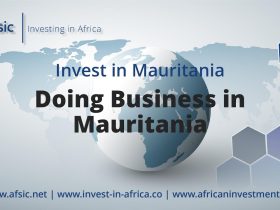
Malta’s main businesses
Malta, a small island nation in the Mediterranean, is known for its strategic location, vibrant economy, and diverse business sectors. Its economy is bolstered by industries that leverage Malta’s geography, skilled workforce, and favorable regulatory environment. Below are some of the main business sectors driving Malta’s economy:
1. Financial Services
Malta is a prominent hub for financial services, attracting international businesses due to its stable economy, EU membership, and competitive tax regimes. The sector includes banking, insurance, investment funds, and fintech. Companies benefit from Malta’s extensive network of double taxation treaties and robust regulatory frameworks overseen by the Malta Financial Services Authority (MFSA).
2. iGaming and Online Gambling
Malta is a global leader in the iGaming industry, with many international operators choosing the country as their base. The Malta Gaming Authority (MGA) provides a transparent regulatory environment, making it a preferred jurisdiction for online casinos, sports betting, and other digital gaming platforms. The industry significantly contributes to GDP and employment.
3. Tourism and Hospitality
Tourism is a cornerstone of Malta’s economy, supported by the country’s rich cultural heritage, historic sites, and scenic landscapes. The hospitality sector includes hotels, restaurants, and entertainment services that cater to millions of visitors annually. Malta also attracts niche markets, such as diving enthusiasts and language students.
4. Maritime and Shipping
Malta boasts one of the largest ship registries in the world, thanks to its strategic location and efficient maritime laws. The sector includes ship repair, yachting, and port services. The Freeport in Malta is a key transshipment hub in the Mediterranean, connecting Europe, Africa, and Asia.
5. Aviation
The aviation industry in Malta is growing rapidly, focusing on aircraft registration, maintenance, and leasing. Malta’s Aircraft Registration Act and its membership in the Cape Town Convention make it attractive for aviation businesses. The Malta International Airport also plays a crucial role in the sector.
6. Pharmaceuticals and Life Sciences
The pharmaceutical and life sciences industries are vital contributors to Malta’s economy. The country is home to several manufacturers of generic drugs and companies involved in medical research and development. Malta’s regulatory alignment with the EU ensures high standards in production and export.
7. Manufacturing and Engineering
Malta has a long tradition of manufacturing, particularly in high-value sectors like electronics, precision engineering, and medical devices. Companies in Malta benefit from a skilled workforce and access to European markets.
8. Real Estate and Construction
Malta’s real estate market is booming, driven by local demand and foreign investment. Residential and commercial developments are supported by government initiatives such as the Individual Investor Programme (IIP), which attracts high-net-worth individuals.
9. Education and Training
The education sector, particularly in English language training, is a significant business in Malta. The country is a popular destination for international students who come to learn English, benefiting from high-quality institutions and the island’s English-speaking environment.
10. Technology and Innovation
Malta is investing heavily in technology, particularly blockchain, artificial intelligence, and cybersecurity. It was one of the first countries to establish comprehensive regulations for blockchain and cryptocurrencies, earning the nickname “Blockchain Island.” Startups and tech firms find Malta’s regulatory environment and government support appealing.
11. Film and Media Production
The Maltese film industry is growing, with the island serving as a location for major international productions. Incentives like tax rebates and a variety of scenic locations make Malta an attractive destination for filmmakers.
Conclusion
Malta’s economy is diverse, with robust growth across multiple sectors. The government’s business-friendly policies, strategic location, and skilled workforce continue to attract international investors and sustain its economic resilience. Malta is a small nation with big opportunities, making it a dynamic player in the global market.



Leave a Reply